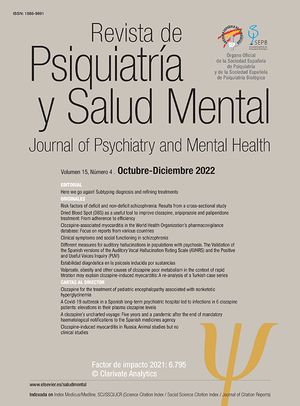Introduction: Obsessive Compulsive Disorder is associated with affected executive functioning, including memory, cognitive flexibility, and organizational strategies. As it was reported in previous studies, patients with preserved executive functions respond better to pharmacological treatment, whilst others need to keep trying different pharmacological strategies.
Material and methods: In this work we used machine learning techniques to predict pharmacological response (OCD patients’ symptomatology reduction) based on executive functioning and clinical variables. Among those variables we used anxiety, depression and obsessive-compulsive symptoms scores by applying State-Trait Anxiety Inventory, Hamilton Depression Rating Scale and Yale-Brown Obsessive Compulsive Scale respectively, whilst Rey-Osterrieth Complex Figure Test was used to assess organisation skills and non-verbal memory; Digits’ subtests from Wechsler Adult Intelligence Scale-IV were used to assess short-term memory and working memory; and Raven's Progressive Matrices were applied to assess problem solving and abstract reasoning.
Results: As a result of our analyses, we created a reliable algorithm that predicts Y-BOCS score after 12 weeks based on patients’ clinical characteristics (sex at birth, age, pharmacological strategy, depressive and obsessive-compulsive symptoms, years passed since diagnostic and Raven progressive matrices score) and Digits’ scores. A high correlation (0.846) was achieved in predicted and true values.
Conclusions: The present study proves the viability to predict if a patient would respond or not to a certain pharmacological strategy with high reliability based on sociodemographics, clinical variables and cognitive functions as short-term memory and working memory. These results are promising to develop future prediction models to help clinical decision making.







